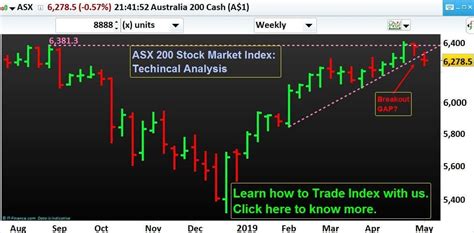In the rapidly evolving world of digital finance, selecting the right cryptocurrency wallet is crucial to safeguard your virtual assets. With the proliferation of options in the market, it can be daunting to find the one that best aligns with your needs. This comprehensive guide will delve into the key features, pros, and cons of the top 10 cryptocurrency wallets, empowering you to make an informed decision and secure your digital wealth in 2025 and beyond.

1. Ledger Nano X: Premium Hardware Wallet
Key Features:
- Supports over 5,500 cryptocurrencies
- Secure Bluetooth connectivity for mobile device access
- Built-in battery for on-the-go transactions
- Easy-to-use interface
Pros:
- Industry-leading security with offline storage
- Comprehensive support for various cryptocurrencies
- Convenient mobile integration
Cons:
- Premium price compared to software wallets
- Limited storage capacity
2. Trezor Model T: Trusted Hardware Wallet
Key Features:
- Supports over 1,200 cryptocurrencies
- Touchscreen interface for seamless operation
- Password manager and 2-factor authentication support
- Extensive security features
Pros:
- High level of security with tamper-proof design
- Intuitive user experience
- Robust ecosystem with third-party integrations
Cons:
- Relatively expensive
- Not as widely compatible with mobile devices
3. Exodus: User-Friendly Software Wallet
Key Features:
- Supports over 100 cryptocurrencies
- Built-in exchange for effortless trading
- Advanced analytics and portfolio tracking features
- Easy-to-navigate interface
Pros:
- Beginner-friendly with a clean and simple design
- Convenient exchange functionality
- Informative dashboard for asset management
Cons:
- Limited security compared to hardware wallets
- Not open-source, raising potential privacy concerns
4. MetaMask: Browser-Based Wallet
Key Features:
- Supports Ethereum-based tokens
- Integrates with popular web3 applications
- Customizable with plugins and extensions
- High compatibility with various devices
Pros:
- Convenient access to decentralized applications
- Extensive ecosystem and development support
- Free to use and easily accessible
Cons:
- Limited cryptocurrency support
- Security risks associated with browser-based storage
- Susceptible to phishing attacks
5. Trust Wallet: Mobile-First Wallet
Key Features:
- Supports over 1 million cryptocurrencies
- Native DApp browser for decentralized app interaction
- Built-in staking rewards
- Multi-chain support
Pros:
- Comprehensive cryptocurrency coverage
- Easy access to decentralized finance platforms
- Convenient for mobile transactions
Cons:
- Lower security than hardware wallets
- Prone to malware attacks on mobile devices
- Limited desktop support
6. Binance Wallet: Exchange-Integrated Wallet
Key Features:
- Native wallet within the Binance exchange platform
- Supports over 300 cryptocurrencies
- High liquidity and trading volume
- Advanced charting and trading tools
Pros:
- Convenient for active traders
- Access to Binance’s extensive ecosystem
- High security measures within the exchange framework
Cons:
- Limited privacy and control over private keys
- Potential vulnerability to exchange hacks
- Focus on trading rather than long-term storage
7. Coinbase Wallet: Renowned Exchange Wallet
Key Features:
- Supports over 100 cryptocurrencies
- Built-in exchange for seamless transactions
- FDIC-insured for up to $250,000
- Intuitive mobile and web interface
Pros:
- Trustworthy and reputable exchange backing
- User-friendly and beginner-oriented
- Government-backed insurance provides peace of mind
Cons:
- Not as secure as hardware wallets
- Control over private keys remains with the exchange
- High trading fees
8. Atomic Wallet: Multi-Currency Desktop Wallet
Key Features:
- Supports over 500 cryptocurrencies
- Built-in exchange with competitive rates
- Anonymous trading with no KYC requirements
- Integrated staking and decentralized finance features
Pros:
- Extensive cryptocurrency coverage
- Convenient exchange and DeFi functionality
- Privacy-focused design
Cons:
- Lower security than hardware wallets
- Potential vulnerability to malware attacks
- Limited mobile compatibility
9. Guarda Wallet: Multi-Platform Wallet
Key Features:
- Supports over 400 cryptocurrencies
- Available across multiple platforms (web, desktop, mobile)
- Built-in crypto exchange
- Staking and DeFi features
Pros:
- Comprehensive coverage of cryptocurrencies
- Cross-platform accessibility
- User-friendly interface
Cons:
- Not as secure as hardware wallets
- Privacy concerns due to mandatory KYC verification
- Limited advanced trading tools
10. SafePal S1: Budget-Friendly Hardware Wallet
Key Features:
- Supports over 40 cryptocurrencies
- Large touchscreen display for ease of use
- Bluetooth connectivity for mobile integration
- Affordable price point
Pros:
- Entry-level hardware wallet with reasonable security
- Convenient mobile access
- Low cost compared to other hardware wallets
Cons:
- Limited cryptocurrency support
- Smaller storage capacity
- Not as feature-rich as premium hardware wallets
Choosing the Right Cryptocurrency Wallet: Key Considerations
Selecting the right cryptocurrency wallet depends on your individual needs and preferences. Here are some key factors to consider:
- Security: Hardware wallets offer the highest level of security, while software wallets provide convenience at the expense of safety.
- Supported Cryptocurrencies: Determine which cryptocurrencies you intend to store and ensure the wallet supports them.
- Ease of Use: Consider the user interface, accessibility, and technical knowledge required to operate the wallet.
- Privacy: Hardware wallets offer enhanced privacy by storing private keys offline.
- Additional Features: Explore wallets that offer additional features such as exchanges, staking, and DeFi integration.
Pain Points and Motivations
Pain Points:
- Security concerns: The risk of losing or having crypto assets stolen due to security breaches.
- Complexity of navigation: The challenges associated with selecting and using a cryptocurrency wallet due to technical complexities.
- Limited accessibility: The lack of access to certain cryptocurrencies or features on some wallets.
Motivations:
- Secure storage: The desire to protect and safeguard digital assets from potential threats and vulnerabilities.
- Ease of use: The preference for wallets that prioritize user experience, making navigation and transactions effortless.
- Feature richness: The demand for wallets that offer a comprehensive range of features, such as support for multiple currencies, trading, and DeFi integration.
Why It Matters
Selecting the right cryptocurrency wallet is crucial for safeguarding your digital assets and ensuring the secure management of your cryptocurrency portfolio. By addressing the key pain points and leveraging the available solutions, you can effectively secure your crypto investments and maximize their growth potential.
FAQs
1. Which cryptocurrency wallet is the most secure?
Hardware wallets, such as Ledger Nano X and Trezor Model T, offer the highest level of security due to their offline storage of private keys.
2. What is the best beginner-friendly cryptocurrency wallet?
Exodus and Coinbase Wallet are renowned for their user-friendly interfaces and simplicity, making them suitable for novice users.
3. Which cryptocurrency wallet supports the most digital assets?
Trust Wallet and Atomic Wallet offer the most extensive cryptocurrency coverage, supporting over 1 million and 500 cryptocurrencies, respectively.
4. What is the difference between a hot wallet and a cold wallet?
Hot wallets are connected to the internet, making them more convenient but less secure. Cold wallets, also known as hardware wallets, store private keys offline, providing superior security.
5. How do I choose the right cryptocurrency wallet for my needs?
Consider the factors outlined above, such as security, supported cryptocurrencies, ease of use, and additional features, to determine the wallet that best aligns with your requirements.
6. What is a non-custodial wallet?
A non-custodial wallet gives you complete control over your private keys, ensuring that you have full ownership and responsibility for your cryptocurrency assets.
7. What are the risks of using a custodial wallet?
Custodial wallets, where the private keys are held by a third party (e.g., an exchange), carry the risk of hacking and loss of funds due to exchange vulnerabilities.
8. What is the future of cryptocurrency wallets?
The future of cryptocurrency wallets lies in the integration of advanced technologies such as biometric authentication, quantum-resistant security, and interoperability across multiple blockchains.
Case Studies
Case Study 1: Ledger Nano X
Ledger Nano X is a popular hardware wallet known for its robust security and extensive cryptocurrency support. It has gained widespread adoption among experienced crypto investors and enthusiasts who prioritize secure storage of their digital assets.
Case Study 2: Exodus
Exodus is a user-friendly software wallet that caters to beginners and casual users. Its intuitive interface and built-in exchange make it an accessible option for those seeking convenience and ease of use.
Case Study 3: Binance Wallet
Binance Wallet is an exchange-integrated wallet that offers convenient trading within the Binance ecosystem. It is ideal for active traders who value liquidity, trading tools, and the backing of a reputable exchange platform.
Table 1: Cryptocurrency Wallet Comparison by Security
| Wallet Type | Storage | Security Features |
|---|---|---|
| Hardware Wallet | Offline | Tamper-proof design, |



